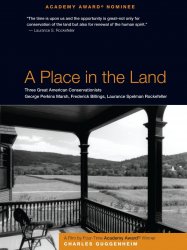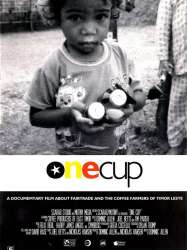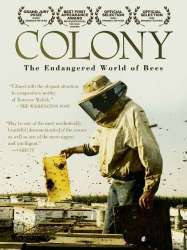The Harvest Shall Come is a British film of genre Documentary with John Slater
The Harvest Shall Come (1942)

If you like this film, let us know!
The Harvest Shall Come is a 1942 British documentary film about agricultural work between 1900 and World War II, using the story of a farm laborer to illustrate the importance of agriculture, and the importance of supporting workers in this occupation. The film, produced by Basil Wright and directed by Max Anderson, was well received.
Synopsis
The opening titles appear over scenes of farm workers stacking hay. The film opens in 1900 when Tom Grimwood as a boy leaves his family cottage carrying his trunk to take a job on a farm for a weekly wage of 2/6 plus keep.Actors

John Slater
(Tom Grimwood)
Comments
Leave comment :
Suggestions of similar film to The Harvest Shall Come
There are 12 films with the same actors, 8965 with the same cinematographic genres, 1248 films with the same themes (including 93 films with the same 3 themes than The Harvest Shall Come), to have finally 70 suggestions of similar films.If you liked The Harvest Shall Come, you will probably like those similar films :

Voices of Transition (2012)
, 1h5Origin France
Genres Documentary
Themes Environmental films, La mondialisation, Films about the labor movement, Documentary films about business, Documentary films about environmental issues, Documentary films about technology, Documentaire sur le monde du travail, Disaster films
Rating75%





Using interviews and overlays of graphics and text, the film presents the current problems facing industrial agriculture. It explores why in the interviewees' view the current industrial model is not up to the task of feeding the world's people. According to the film every calorie of energy contained in a food source currently takes between 10 and 20 calories of crude oil in the production of fertilizers and transportation to produce, leading to a strong dependence of the cost of food on oil prices. As a result of peak oil and increasing oil prices this dependence will lead to ever increasing food prices. According to the film, this dependence already represents a significant weak-spot in the global food supply chain. Additionally, agriculture is already responsible for 40% of greenhouse gas emissions, contributing to climate change. Furthermore, the film argues that the overuse of inorganic fertilizers has been responsible for the loss of soil fertility and threatens the complete loss of usable soil within the next decades through soil erosion and sinking crop yields. These effects, according to the film, can only be partly mitigated by the increased use of those same fertilizers. The loss of workplaces, the concentration of land in the hands of a few (allegedly a farm closes every 23 minutes in France) as well as the dependence on large corporations are enumerated as side effects of the industrialisation of agriculture since the 1920s. Companies, such as Monsanto and Bayer, control everything from seed stock to fertilizers and the necessary chemical mixes for hybrid plants, thereby controlling the entire supply chain. The film argues that this development was supported through subsidies from the World Bank. Interviews with Vandana Shiva, the founder of the Transition Towns movement Rob Hopkins and various agricultural experts serve to argue this viewpoint. The dependence on crude oil is illustrated through the example of the wholesale food market in Rungis.

The Wanted 18 (2014)
, 1h15Origin Canada
Genres Documentary, Animation
Themes Films set in Africa, Films about animals, Environmental films, Films about religion, Films about the labor movement, Documentary films about business, Documentary films about law, Documentary films about environmental issues, Documentary films about war, Documentary films about historical events, Documentary films about politics, Documentary films about religion, Documentaire sur le monde du travail, Films about cows, Political films, Films about Jews and Judaism, Mise en scène d'un mammifère
Rating71%





L'œuvre présente les efforts des Palestiniens habitant la ville et la région de Beit Sahour, en Cisjordanie, pour démarrer une petite industrie laitière locale au cours de la première Intifada, en cachant un troupeau de dix-huit vaches laitières aux forces de sécurité israéliennes qui considérait la production de laitages comme une menace pour la sécurité nationale d'Israël.

A Place in the Land (1998)
, 32minutesDirected by Charles Guggenheim
Origin USA
Genres Documentary
Themes Environmental films, Documentary films about business, Documentary films about environmental issues
Rating61%






Let It Be (2005)
Origin Taiwan
Genres Documentary
Themes Environmental films, Documentary films about business, Documentary films about environmental issues
Rating68%





This documentary records the lives of several old farmers (peasants) in Chheⁿ-liâu Village, Āu-piah (i.e., Houbi Township), Tainan County (now part of Tainan City). It generated discussion and debate in the Taiwanese civil society about the impact on agriculture due to its membership in the World Trade Organization.

After Winter, Spring (2015)
, 1h15Genres Documentary
Themes Environmental films, Documentary films about business, Documentary films about environmental issues
Rating67%






Blood in the Mobile (2010)
Origin Danemark
Genres Documentary
Themes Environmental films, Documentary films about business, Documentary films about environmental issues
Rating70%






One Cup (2006)
, 28minutesGenres Documentary
Themes Environmental films, Documentary films about business, Documentary films about environmental issues

Northland (1942)
, 20minutesDirected by Ernest Bornemann
Origin Canada
Genres Documentary
Themes Environmental films, Documentary films about business, Documentary films about environmental issues

Fresh (2009)
, 1h12Origin USA
Genres Documentary
Themes Environmental films, Documentary films about business, Documentary films about environmental issues
Rating73%





Joanes sets out to profile people who are breaking away from conventional models of agriculture and food production. In the Shenandoah Valley of Virginia, Joel Salatin explains how he keeps his cows, chickens, pigs and natural grasses flourishing without using artificial fertilizers by closing the nutrient cycle. At Growing Power farm in Milwaukee, we meet Will Allen, who is turning three acres of industrial wasteland into nourishing farmland for his neighborhood. In Kansas City, David Ball breaks away from the standard concept of a supermarket by stocking his stores with produce from a cooperative of local farmers.

Colony (2009)
, 1h25Genres Documentary
Themes Films about animals, Environmental films, Documentary films about business, Documentary films about environmental issues, Films about insects
Rating64%





 Connection
Connection